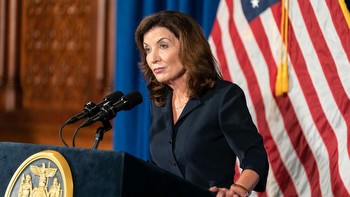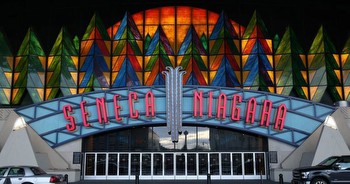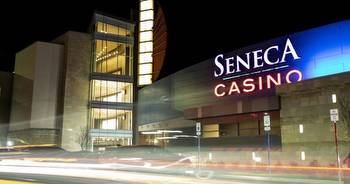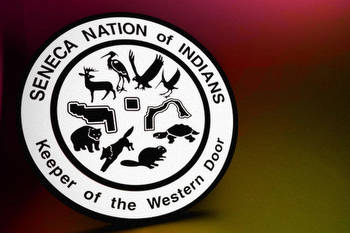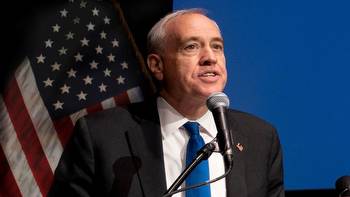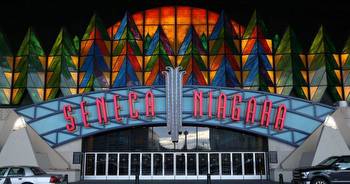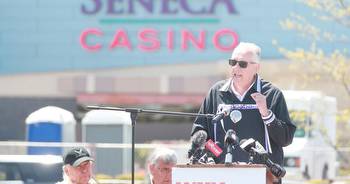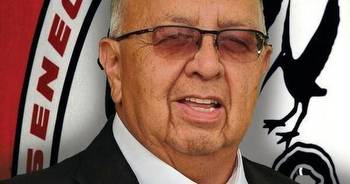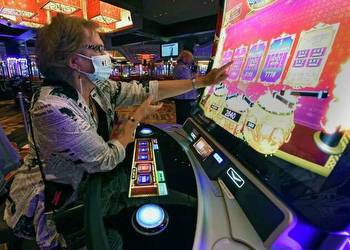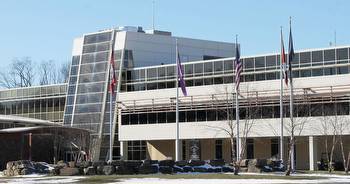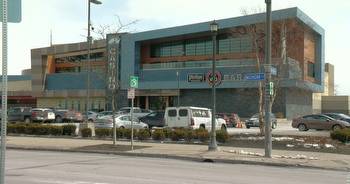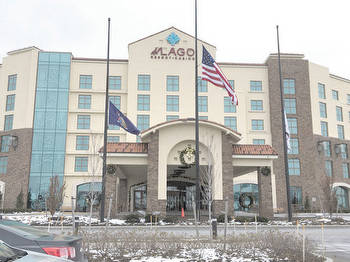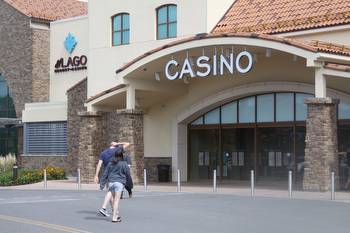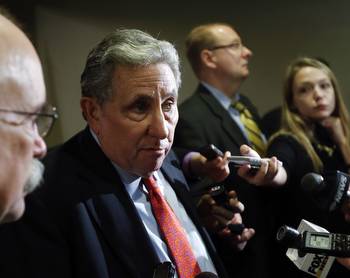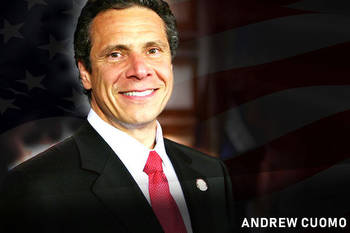Local leaders riled by apparent deal with Seneca Nation for Rochester casino
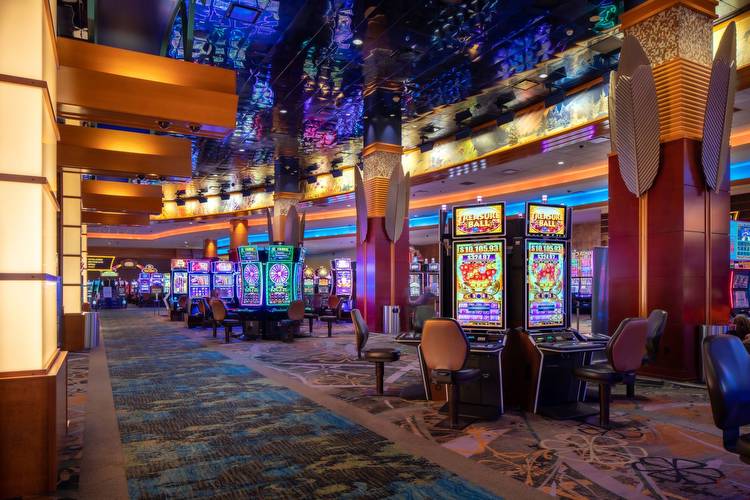
Local political leaders say they are dismayed that the New York State Senate and Gov. Kathy Hochul’s office apparently have agreed to a new gaming compact with the Seneca Nation that includes a full casino in the city of Rochester.
Seneca Nation leaders on their own announced last week that a “conceptual agreement” on a new 20-year compact had been reached, and on Friday night the Senate voted to approve a bill that gives the governor’s office the authority to negotiate terms of the compact, which expires in December.
Should a casino open in the city in the next few years, there would be a significant economic impact on three nearby gaming facilities and the region’s horse racing industry.
“It’s deeply troubling that this community has now been placed in this position of debating an issue without knowing the full details of what has been negotiated,” Monroe County Executive Adam Bello said in a prepared statement released on Monday afternoon.
The Senate voted by a 60-3 margin to approve the measure, with only Jeremy Cooney (D-Rochester), Samra Brouk (D-Rochester) and Thomas O’Mara (R-Elmira) voting against. The Assembly did not yet vote on the bill, delaying any official confirmation. (Initial reports indicated only Cooney cast a nay vote, but the state senate website on Monday evening posted the official voting.)
“I have concerns with the announced deal between New York State and the Seneca Nation,” Cooney said in a news release. “As a state senator, I did not feel comfortable voting in favor of legislation that removes state lawmakers from their oversight responsibilities and limits input from the public.
“Before a state compact is made with the Seneca Nation, I believe there needs to be an opportunity for public comment and demonstrated partnership with local governments, including the city of Rochester.”
The Rochester Business Journal reported on June 1 that the Seneca were looking at real estate in the city for what it said would be a possible business venture. While the Seneca do operate convenience stores and a golf course, their primary entrepreneurial activities are based on casino gaming.
They currently operate three full casinos, which is the maximum allowed under the current compact for the geographic region west of state Route 14: Seneca Niagara Resort & Casino in Niagara Falls, Seneca Buffalo Creek Casino in downtown Buffalo and Seneca Allegany Resort & Casino in Salamanca.
Rochester Mayor Malik Evans said he finds it troubling that local officials have been excluded from compact negotiations.
“Neither city leadership nor members of our New York State delegation has been involved in any conversations related to this possibility,” Evans said in a prepared statement release on Monday morning. “Any conversation of this magnitude that does not include local stakeholders is unacceptable.
“There are already numerous casinos in the Rochester area. My focus remains on meaningful opportunities that create a vibrant Rochester economy focused on the jobs of the 21st century.”
Said Bello: “A matter as significant as the placement of a casino in Rochester should be discussed out in the open, in conversations that include members of our state delegation and local officials.”
The Seneca can only open a casino on property that is deemed sovereign land. The federal government must provide that designation.
There is little doubt that existing gaming facilities in the region would be impacted if the first casino in Rochester is built. Finger Lakes Gaming & Racetrack offers video lottery terminals and thoroughbred horse racing in Farmington, Batavia Downs Gaming & Hotel in Batavia offers VLTs and harness racing, and del Lago Resort & Casino just off the New York State Thruway near Waterloo provides slot machines, table games and a sports book.
Those three facilities combined account for approximately 4,000 jobs, from blackjack dealers to hotel housekeeping to horse trainers and jockeys.
Between 75 percent and 80 percent of business for Finger Lakes and Batavia Downs comes from the patrons who live in Rochester metro area. del Lago derives a significant percentage of business from Rochester as well.
“Finger Lakes Gaming & Racetrack has long been a vital economic contributor in the Rochester region by employing over 1,500 local residents and supporting the region’s agricultural and equine economies through racing,” Finger Lakes management said in a prepared statement.
“The state’s video lottery terminal (VLT) gaming venues contribute a far greater percentage of their revenue to the state than the Seneca casinos, meaning the demise of the Finger Lakes venue at the hands of a Rochester-area Seneca casino would cost the state tens of millions of dollars in revenue and the regional economy thousands of jobs. We implore the state Assembly to intervene to stop this back-door deal.
Finger Lakes is owned privately by Buffalo-based Delaware North Cos.; Batavia Downs is the corporate home of Western Regional Off-Track Betting, a public benefit corporation; and del Lago is owned by Churchill Downs Inc.
Those three facilities paid right around $160 million in gaming taxes to the state in the fiscal year that ended on March 31. The three Seneca casinos paid $109 million to the state for the same time period.
The difference in payout is due to the percentage paid by each entity. The racinos and casinos pay around 56 percent to the state. Seneca casinos pay 25 percent under the current compact and had publicly said they need to lower that percentage in any new agreement.
A decline in business at Finger Lakes and Batavia Downs means purses would be cut for horse racing. Right now, about 75 percent of the total purse structure for horse racing at Finger Lakes comes from VLT revenue. That figure is closer to 80 or 85 percent at Batavia Downs.
The “racinos” were established by the New York State legislature as a way to generate gaming revenue for the state but also support horse racing. The horse racing industry receives a percentage of VLT revenue.
Those three businesses also are heavily unionized, from gaming floor employees, administrative personnel, security, hotel staff, mutuel tellers, outriders and more.
“I’ve heard from a number labor organizations who are particularly concerned about the implications on their workforce,” Cooney said Monday afternoon.
The nine members of Rochester City Council all signed a letter that was sent to Gov. Hochul on Monday, imploring her to rescind any deal already reached and/or end discussions.
“In New York State, we often require “home rule” consent and legislation to move initiatives forward that will greatly affect local municipalities,” the letter says. “In this instance, that consent is nonexistent — local leaders and citizens have not been consulted or even informed that his was under consideration.
“We ask you, as our governor, along with both houses of the New York State Legislature, to halt any conversation about a downtown Rochester casino.”








